Venues
Whilst based on the campus of St Hilda’s College, University of Oxford, the festival features recitals in iconic, historic venues across the city centre.
Find out more about each of these stunning locations below.
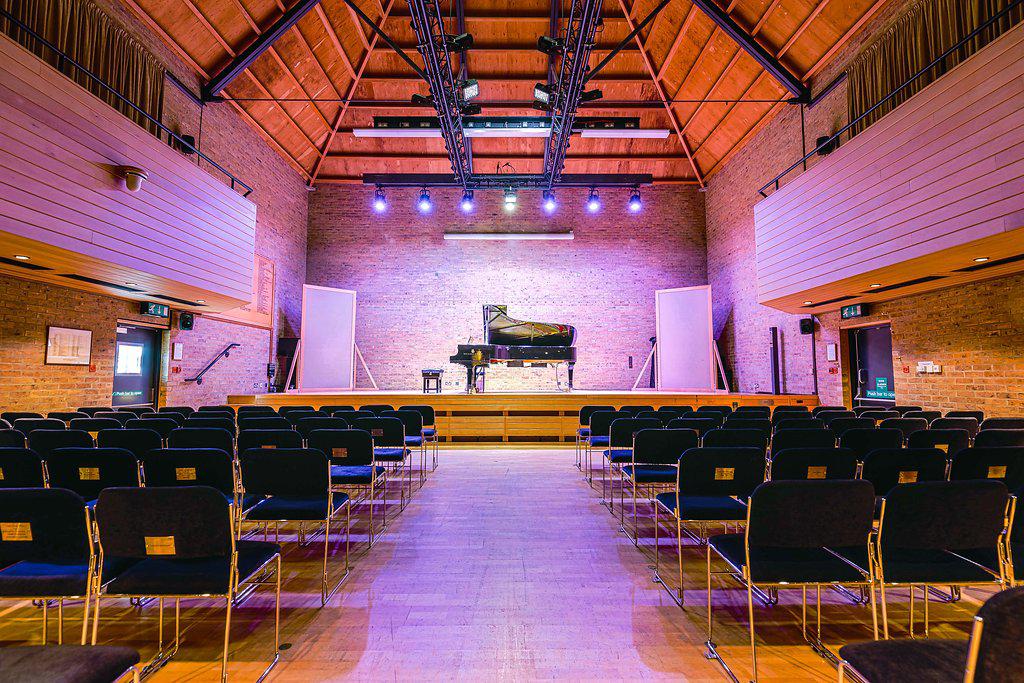
Jacqueline du Pré (JdP) Music Building
The JdP Music Building is a beautiful, modern, and intimate music venue specifically built for chamber music performance and dedicated to the memory of the extraordinary cellist Jacqueline du Pré. This building is our main centre of activity and is set within the grounds of St Hilda’s College.
The Oxford Piano Festival office and box office, located in the JdP foyer, will be operated on a daily basis throughout the Festival from 9am to 6pm by Piano Festival staff, who will be able to help with all your enquiries.
There are daily masterclasses in the JdP from 9.30am to 5.50pm, as well as the Participants’ Recital on Saturday 1 August, which will be followed by a drinks reception.
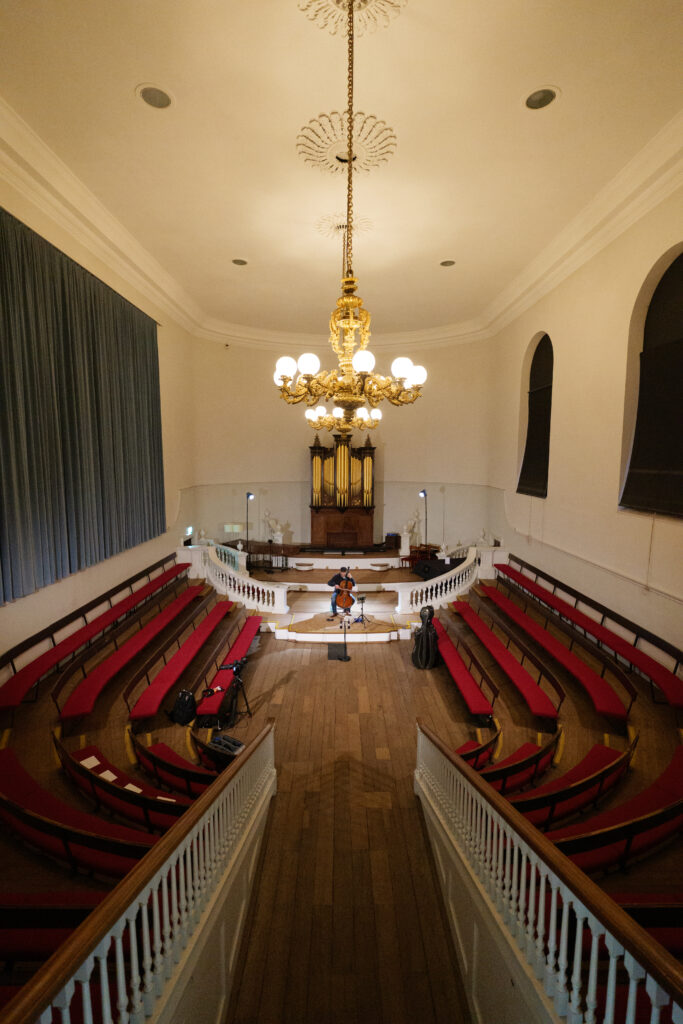
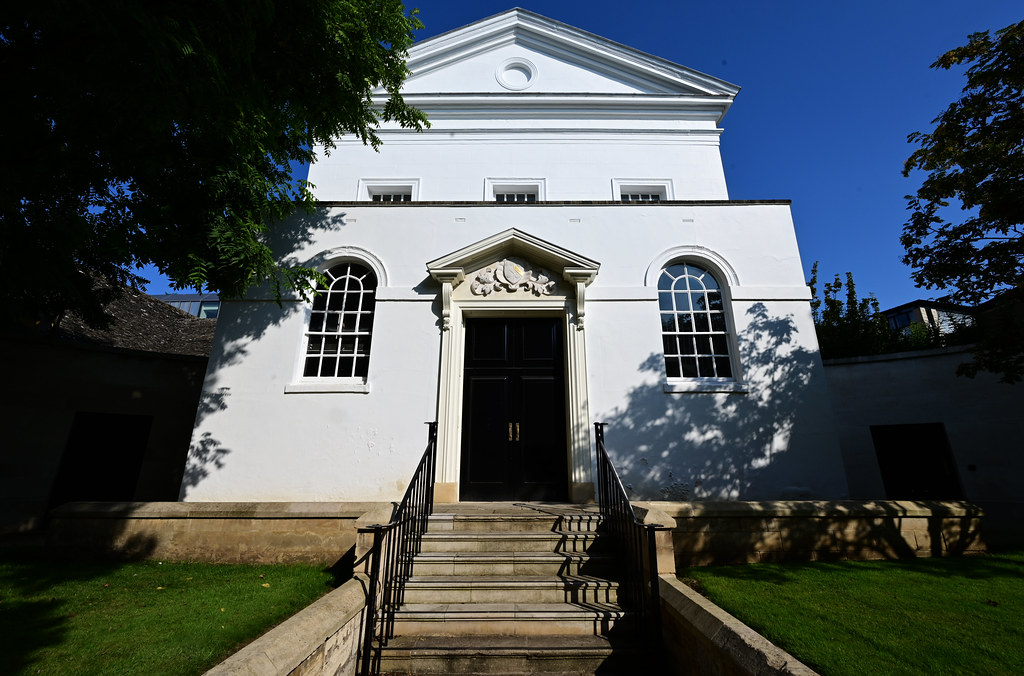
Holywell Music Room
Situated on Holywell Street in the heart of Oxford, the Holywell was the first purpose-built concert hall in Europe. It was built in 1742 and many musicians, including Haydn, have performed here.
It seats 200 people and offers a wonderful resonant acoustic. The Holywell Music Room is about a 15-minute walk from St Hilda’s College and will host Ingrid Fliter’s recital on Saturday 26 July and Richard Goode’s recital on Friday 31 July.
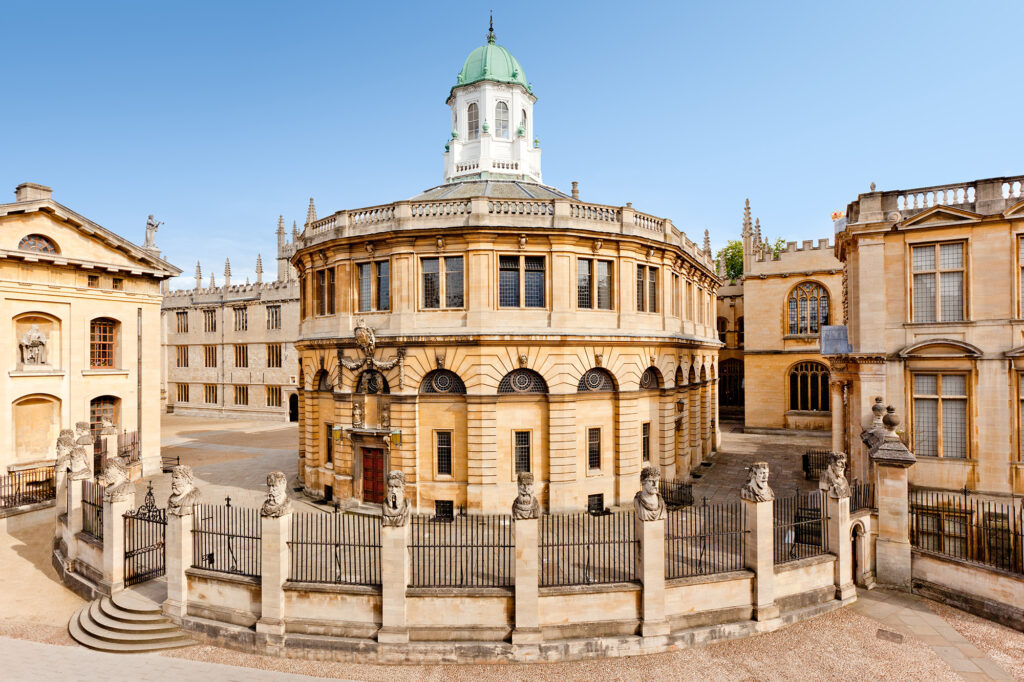
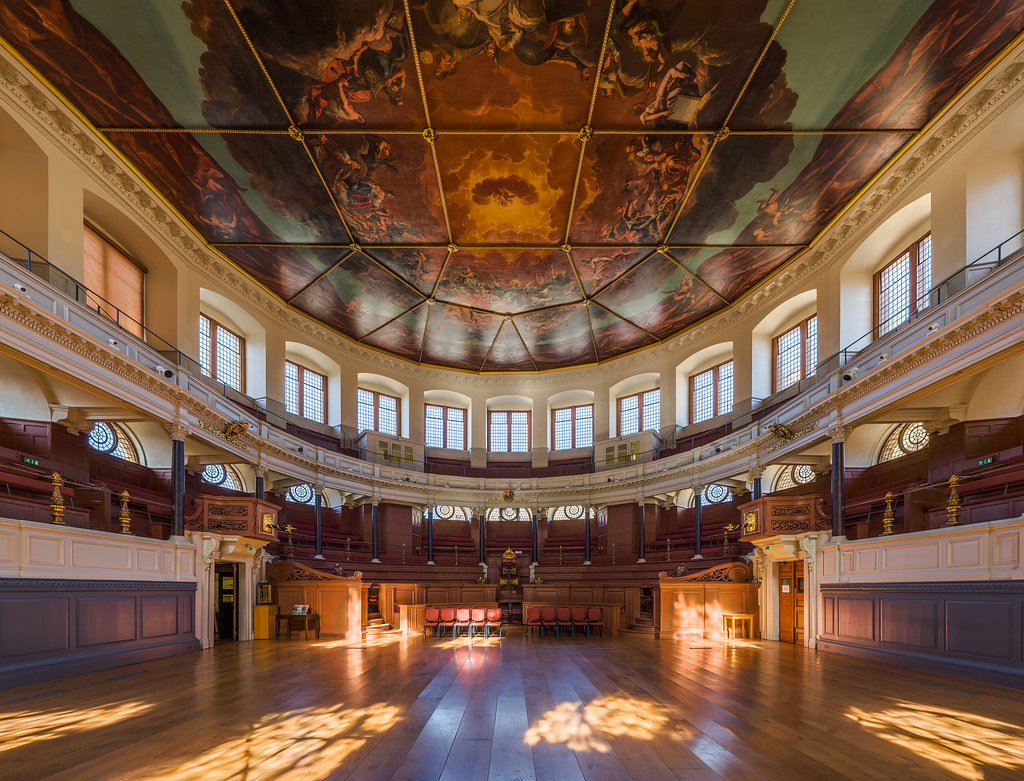
Sheldonian Theatre
Designed by Sir Christopher Wren, the Sheldonian was built between 1664 and 1668 for the University of Oxford. The building is named after Gilbert Sheldon, Chancellor of the University at the time and the project’s main financial backer. It is used for concerts, lectures and university ceremonies.
This ceremonial hall of the University is the venue for the concert by Theodosia Ntokou on Thursday 30 July for her performance of Grieg’s Piano Concerto alongside the Festival’s host orchestra, the Oxford Philharmonic Orchestra, conducted by Marios Papadopoulos. It is also the venue for Paul Lewis’s recital on Monday 27 July and Elisabeth Leonskaja’s recital on Tuesday 28 July.
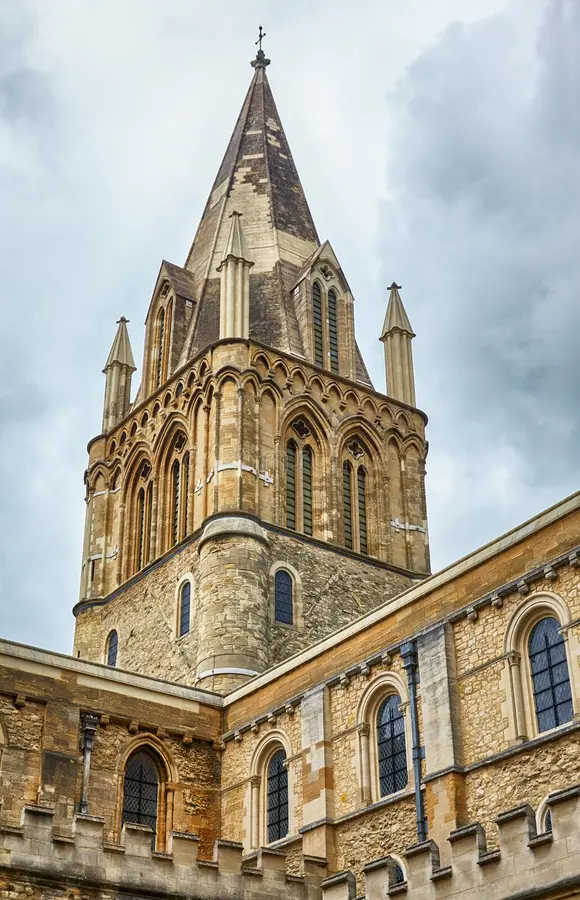
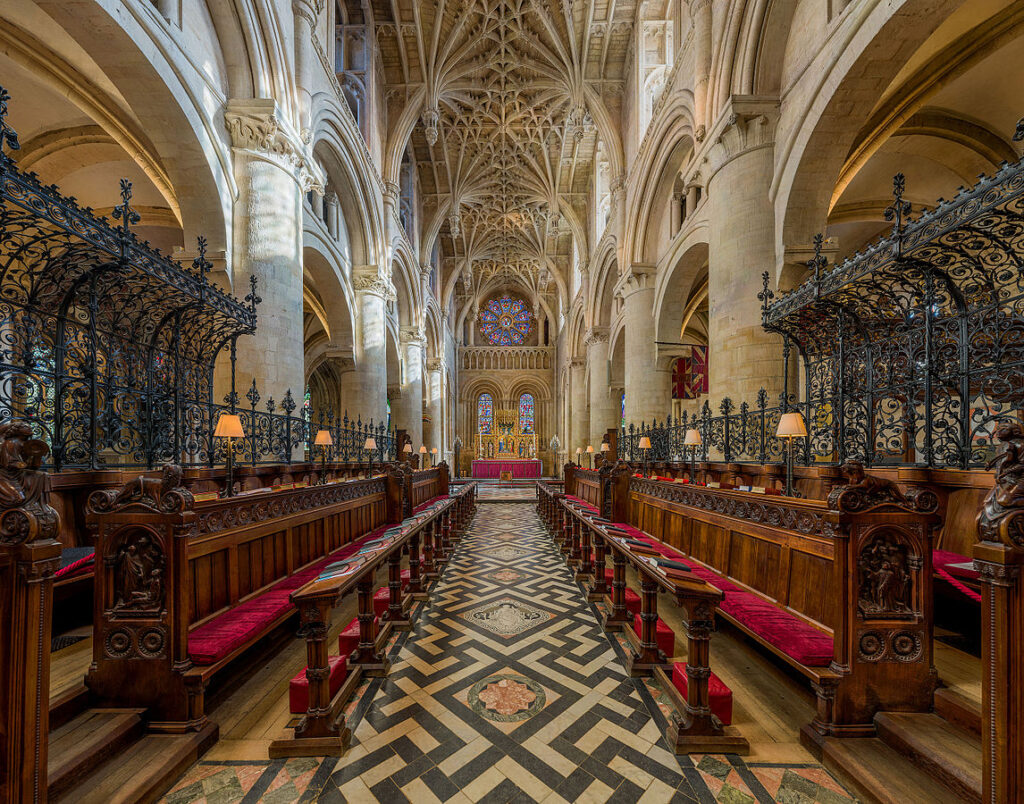
Christ Church Cathedral
Although the college was originally founded by Cardinal Wolsey as ‘Cardinal’s College’ in 1524, the Cathedral was actually constructed in the last quarter of the 12th century as the monastery church for a community of Augustinian Canons. During the First English Civil War (1642-1646) King Charles I lived at Christ Church, held his Parliament in the Great Hall and attended services in the Cathedral.
The Cathedral is the location for Steven Osborne’s recital on Saturday 25 July. It is found in the grounds of Christ Church College – one of the oldest Oxford colleges.

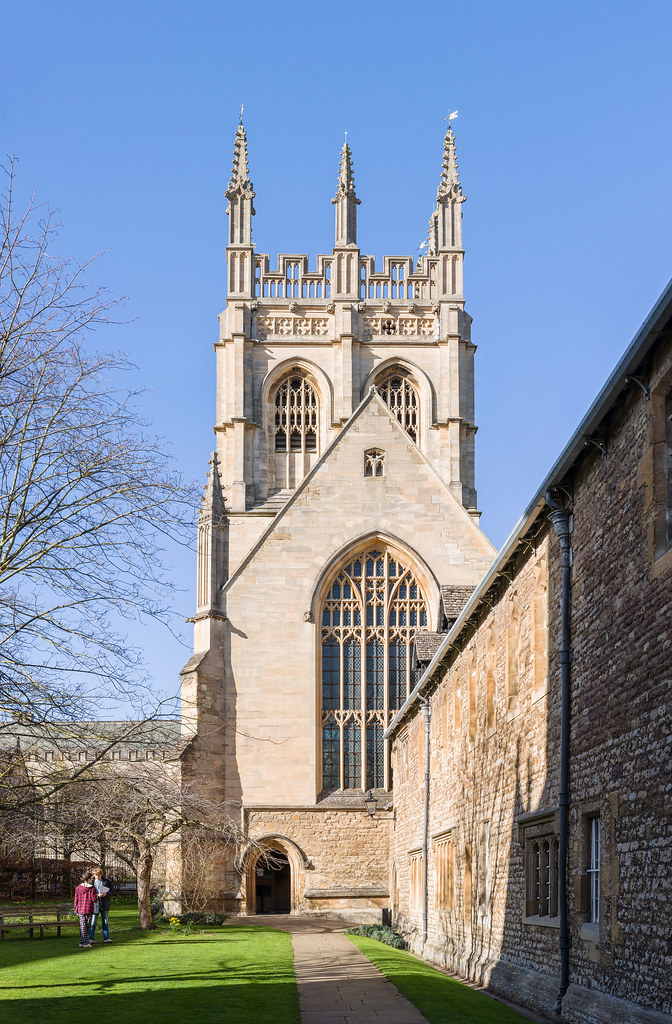
Merton College Chapel
Merton College was founded in 1264 and its chapel is one of the oldest and most historically significant chapels in Oxford. For centuries, the choir has been an integral part of the college’s life, and today, hosts the renowned Merton College Choir, remaining an important spiritual and cultural centre, with regular services, concerts, and events.
Merton College Chapel is situated in the heart of the city centre and is the venue for Isata Kanneh-Mason’s recital on Tuesday 28 July.